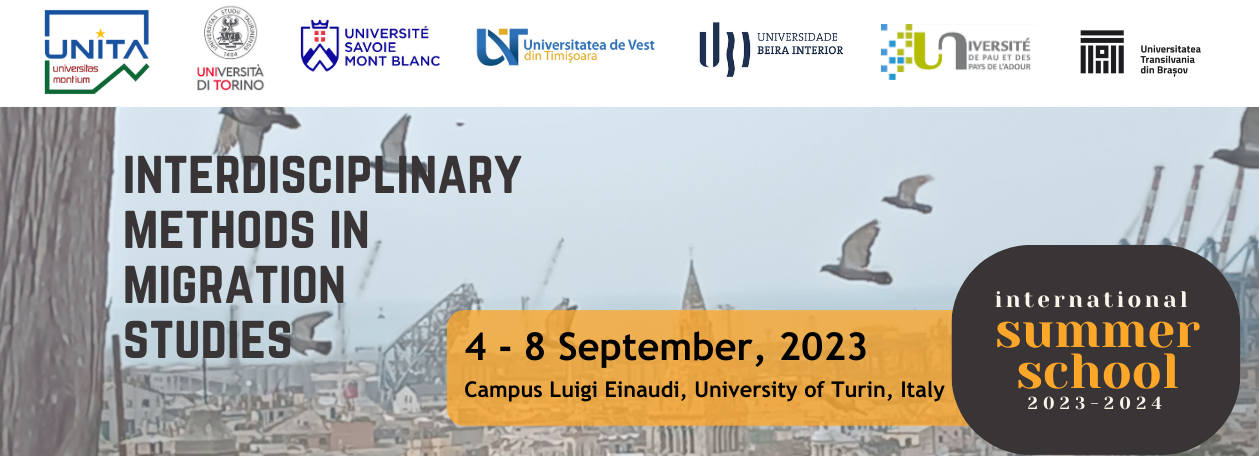
|
|
|
Program > September 4SEPTEMBER 4, 2023 10.00 - 12.00 The stress of migration:Effects of stress and trauma on health and disease Sonia Pellissier Université Savoie Mont Blanc. Laboratoire LIPPC2S Chambéry Trauma and PTSD: The fear reaction Frédéric Canini Université Savoie Mont Blanc. Laboratoire LIPPC2S Chambéry Stress is a psychophysiological reaction that aims to adapt the individual to the environmental challenges. Stress is helpful when adjusted to the challenge but stress may be deleterious when not adjust in extent (too much or not enough) or in duration (prolonged stress after disappearance of the challenge). Therefore, confronting stress is an inherent part of life and our psychological, physiological and biological reactions are adapted to enable us to cope with and overcome stressful situations. Nevertheless, in situations where exposure to the stressor becomes chronic, intense and/or traumatic, as may be the case in migration situations, especially if these are imposed by precariousness, danger and strong and vital threats (war, poverty, climatic disasters...), the stress response may be overwhelmed. Under these conditions, a state of chronic stress can lead to health disorders and stress-related pathologies. In this course, we will discuss the mechanisms that explain the emergence of these pathologies and their possible impact on offspring. We will see how the immune system is the link between chronic stress and trauma and health. People may also experience a fear reaction when confronted acutely to an aggressor. The fear reaction is mainly unconscious and associates a strong stress reaction and a characteristic behavioral sequence: an anxious arousal when the stressor is present but far, a flight when possible or a tonic freezing or a fight when the aggressor is nearer and finally a behavior mimicking death when the situation is hopeless. This reaction called “the acute stress reaction” disappears in most of the case but may persist along time. It features the post-traumatic stress disorder (PTSD). The closer is the aggression and the greater is the risk to develop PTSD after acute stress reaction. In PTSD, people experience repeatedly the initial psychological traumatism, avoid contexts that resemble to that of the trauma, and suffer of an intense anxiety together with an excessive arousal with sleep disorders. Some complication can occur such as depression and addiction. PTSD is the consequence of the memorization of the initial traumatism with contextual and emotional parts. The PTSD can be treated using psychological methods that seek to extinguish the emotional memory using EMDR or cognitive therapy. Unfortunately, people experiencing an acute stress reaction, and of course a PTSD, are prone to develop another one when exposed to other confrontations. It would be important to seek traces of potentially traumatic confrontations, acute stress disorder, stress-induced pathologies and PTSD in migrants as their history is at risk for stress disorders. An early detection and treatment may improve their integration in the countries of emigration.
10.00 - 11.30 Methodological and ethical issues in ethnographic research on migration Barbara Sorgoni Università di Torino The lecture will explore, from an anthropological perspective, how ethnographic methodology has changed in the last few decades in relation to parallel changes in the global order and in migration policies, addressing both the global North and South. It will propose some selected ethnographic cases which will enable an analysis of different ethical issues that emerge when doing fieldwork in sensitive fields, and it will discuss possible strategies and solutions.
14.00 - 16.00 Online migration data Luiza Mesesan Schmitz Universitatea Transilvania din Brasov This course aims to develop skills to manage online resources in migration. Students will work interactively with some online databases and learn how to find, extract, visualize, make comparative analyses and tell the story through data. Also, students will work with online documents provided by representative institutions (reports, Eurobarometer etc.). Everyone can take this course; no experience is needed. [Course thought online].
14.00 - 16.15 SCREENING: Academic_Puszi Georgiana Turculet Universitat Pompeu Fabra Academic_Puszi, by Georgiana Turculet, PhD, awarded Marie S. Curie Fellow, reflects upon the idea of being stuck in movement. The film unveils the precarity behind the otherwise prestigious outlook of her and most academic profiles and careers. The documentary reconstructs, through a poetic and reflexive style and rhythm, Georgie's story that intertwines with interviewees' personal and professional stories - all mounting jointly a criticism of the societal and academic culture and structure, within which we all live. Official Trailer: https://youtu.be/HWf37gHT27k.
16.30-18.00 KEYNOTE LECTURE. Moving beyond. Symptoms and imaginaries of migration Francesca Morra (Passi@Unito) Università di Torino. CREtAM - Department of Cultures, Politics and Society How is migration imagined? And how is it desired? Drawing on the ethnography of an interdisciplinary clinical setting, this lecture discusses the forms and the roots of suffering among young migrants in Italy. In their migration trajectories different imaginaries of mobility resonate, and sometimes collide, producing entanglements between mental distress, multiple dimensions of exclusion and precarity, and aspiration to move.
Theme: Health & migration Methods in migration studies Interdisciplinary focus Plenary session
|

